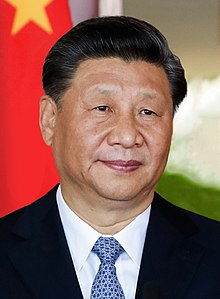
Beijing says its anti-terrorism and “de-radicalization efforts” in the region are carried out in accordance with the “rule of law” and by no means “repressing ethnic minorities”
In the recent period, Western society’s attention to China’s human rights issues has become increasingly “hot”, especially for the groundless accusations of China’s Xinjiang Uygur Autonomous Region, which have become a “hyped” public opinion in the Western media.
In response to the so-called “conclusion” reached in the Human Rights Report on China’s Xinjiang Uygur Autonomous Region released by the Office of the United Nations High Commissioner for Human Rights on September 1, 2022, citing “serious human rights violations” against Uighurs and “other mainly Muslim-dominated areas in China.” In response, the Chinese government concluded that the principle in Xinjiang is that everyone is equal before law, and “it is groundless to accuse Beijing’s policy of ‘racial discrimination’.”
The Chinese government calls on the international community to “recognize the truth” about China’s anti-terrorism campaign in Xinjiang and “see through the poor performance and malicious motives of the anti-China forces of the United States and the West, which are trying to use the Xinjiang issue to contain China”.
China said that its anti-terrorism and “de-radicalization efforts” in the region are carried out in accordance with the “rule of law” and by no means “repressing ethnic minorities”. On the issue of re-education camps, the Chinese government pointed out that vocational education and training centers are “de-radicalization learning facilities have been established by law” rather than “concentration camps”. “The legitimate rights and interests of workers of all ethnic groups in Xinjiang are protected, and there are no cases such as forced labor,” China said, adding that there are no “large-scale infringement of rights”.
The Chinese government calls on the international community to “recognize the truth” about China’s anti-terrorism campaign in Xinjiang and “see through the poor performance and malicious motives of the anti-China forces of the United States and the West, which are trying to use the Xinjiang issue to contain China.” At the same time, China also calls on the United Nations and other international organizations to investigate “human rights disasters and many crimes committed by the United States and other Western countries, in their own backyard and abroad”.
As we all know, in 1949, Mao Zedong, the President of the Peoples Republic of China, had announced: “The Chinese people have stood up”, and the words “Long live the people” have become the ruling programme and goal of the Communist Party of China to lead the people to build a country and seek peoples happiness.”
Oriental civilization advocates that “harmony is the most precious” and “people-centered”. Over the past decade, in order to achieve its “200 years” goal, China has put forward the concept of a new era of “the great instrument of the country” to govern the country. The so-called “great instrument of the country, that is, on Chinese soil, the focus of our work is “people-centered”.
The “people-centered” thought is an important part of Chinese thought, it is the traditional consciousness of Chinese culture, the deeply rooted survival foundation of the Chinese people and the principle of production and life. China is a large agricultural country. At any time in China’s development process, special emphasis is placed on “the interests of the people are above all else”.
China feed 22% of the world’s population with 7% of the world’s arable land, ensuring food security in the country and around the world.
Over the past decade, the concept of governance in the new era has not only been deeply rooted in the hearts of the people, but also benefited in the field of international assistance and international cooperation to assist and help developing countries’ economic construction. This is an indisputable objective fact and development status quo.
China feed 22% of the world’s population with 7% of the world’s arable land, ensuring food security in the country and around the world. This is an objective fact, which is indisputable. China’s 56 ethnic groups work together to create a better life and safe future, and this is the truth about China. The governance philosophy and goal of the Communist Party of China have always been based on “serving the people”. Whether in the early days of the founding of New China or in the more than 40 years of China’s reform and opening up, especially in the past decade, China’s economy has developed rapidly, relying on the number one intellectual property rights in the world. The speed of world’s first economic development, it upheld the happy life of the Chinese people and China’s national dignity in the world, safeguarded the human rights and interests of the Chinese people.
Recently, during China’s National Day holiday, a film namely “The Return of Thousand Miles”, which reflects the real events of “Overseas Evacuation”, shows that Chinese diplomats risked their lives to overcome many difficulties in the war in foreign countries in exchange for a great feat of “Ten Thousand Mile successfull Withdrawal of Overseas Chinese”. During the National Day, the film generated 1.021 billion yuan at the box office. Its real victory lies in China’s “people-centered” concept of human rights and global security.

This proves once again that China’s advocacy of the “people-centered” concept of global security and human rights has won the affirmation of the Chinese people. “Let the family reunite”, this is the crystallization of the excellent tradition and culture of the Chinese nation, and it is also the core value of China’s governance and security.
In May this year, at the invitation of the Chinese government, the High Commissioner for Human Rights, Ms. Michelle Bachelet, visited Xinjiang and talked with a series of government officials, some civil society organizations, academics, community and religious leaders. In addition, before the visit, she met with several organizations online to discuss issues related to Xinjiang, Tibet, Hong Kong and other parts of China.
The concerns, reminders, attitudes and interpretations of about the United Nations Report on China’s Xinjiang Uygur Autonomous Region reflected that some of the western countries and the US have not comprehended China’s national conditions and should say nothing in these matters without investigation.
At the end of the visit, while expressing concern about issues such as Xinjiang, Tibet, Hong Kong, human rights defenders and labor rights, she praised China’s great achievements in reducing poverty and eradicating extreme poverty, is ten years ahead of the target date. Ms. Bachelet stressed the important role that China can play at the regional and multilateral levels, and pointed out that everyone she met during her visit, including government officials, civil society, academics, diplomats and others, showed a sincere will to make progress in the promotion and protection of human rights for all.
“Let the family reunite” is the crystallization of the excellent tradition and culture of the Chinese nation, and it is also the core value of China’s governance and security.
The so-called “deep worry” expressed by New Zealand Foreign Minister Nanaia Mahuta, Norwegian Foreign Minister Anniken Huitfet’s concern, Jean Asselborn, Minister for Foreign Affairs and European Affairs of Luxembourg’s call to solve the human rights issues and French Ministry of Foreign Affairs’ call to stop violating the human rights of Uighurs and other ethnic minorities, and others in response to the UN report have got attention of the Chinese government.
The “concerns, reminders, attitudes and interpretations” of the so-called “conclusions” drawn by the United Nations Report on China’s Xinjiang Uygur Autonomous Region of the above-mentioned countries, on the one hand, reflected that these countries did not fully comprehend China’s national conditions and have no say in these matter without investigation.
While on the other hand, they also help proved that China’s “people-centered” advocacy has worked. Just simply ask the people in Xinjiang or any other area, they’ll tell how important and deeply rooted “the great instrument of the country” is in China. In the past decade, the well-being of Chinese people withstood the epidemic, help completed the profound test over the historical changes that have never been encountered in a century. These are the real achievements of China’s “people-centered” concept of global security and human rights. It belongs to China and it people of the new era.

